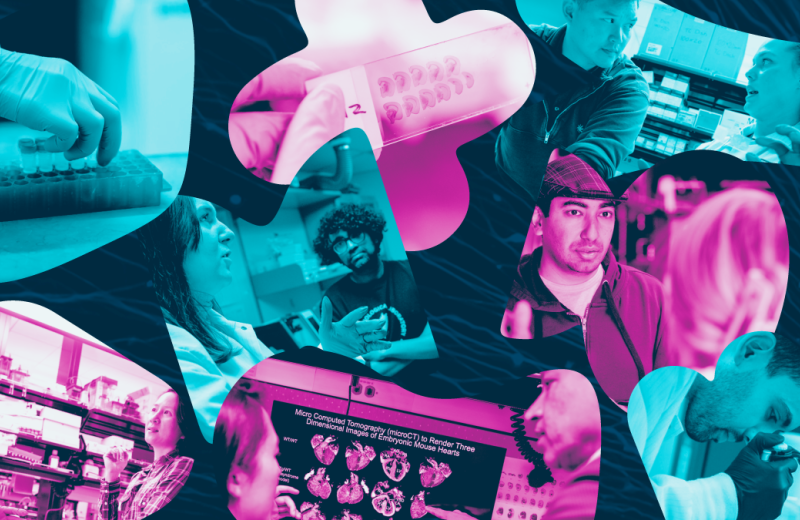Gladstone NOW: The Campaign Join Us on the Journey✕
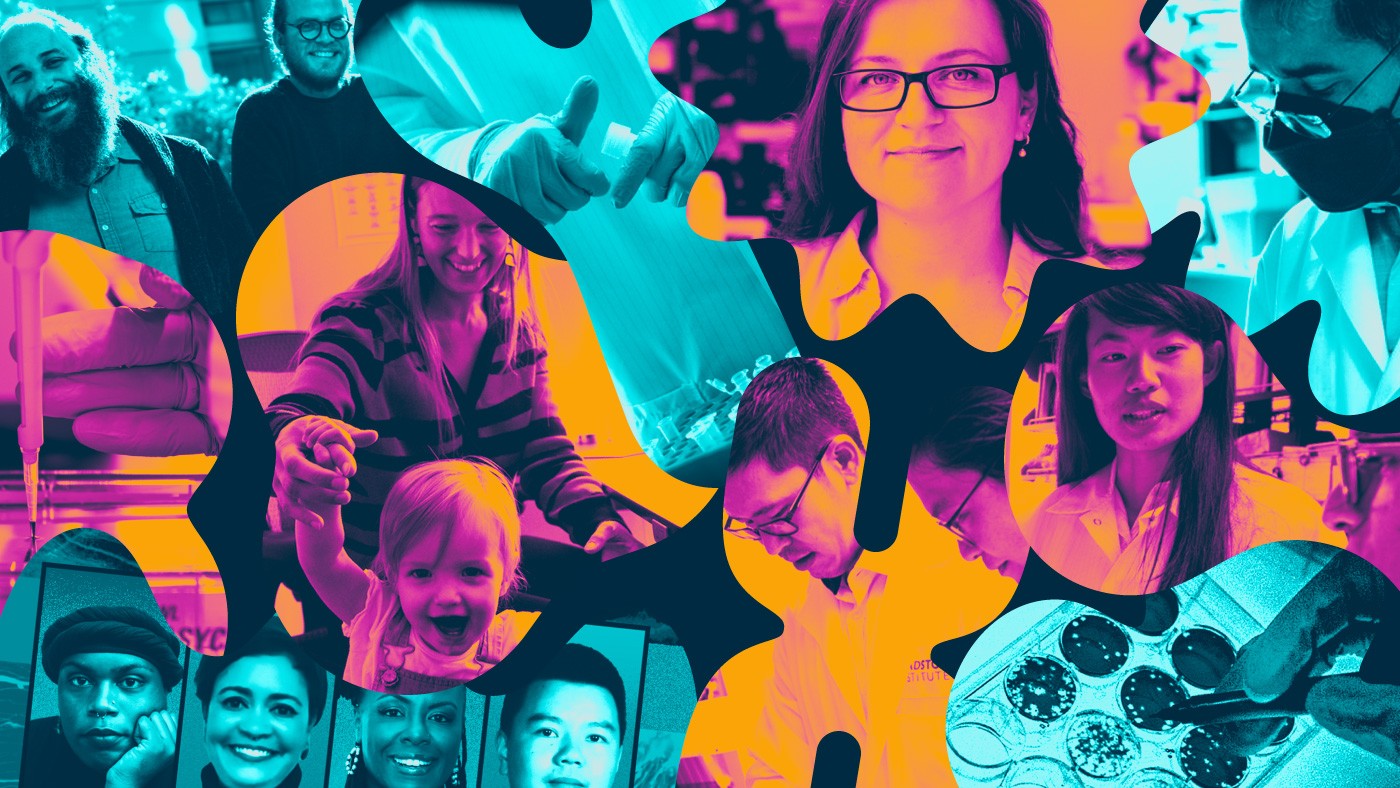
A look back at highlights from 2022.
2022 has been another impactful year for Gladstone. Our researchers continued to monitor the COVID-19 pandemic, addressed new emerging public health crises, and banded together to support those affected by the war in Ukraine—all while continuing to make critical scientific discoveries.
Rediscover some of Gladstone’s most influential stories from 2022.
1. Researchers Pioneer New Method to Edit Genes in Human Cells
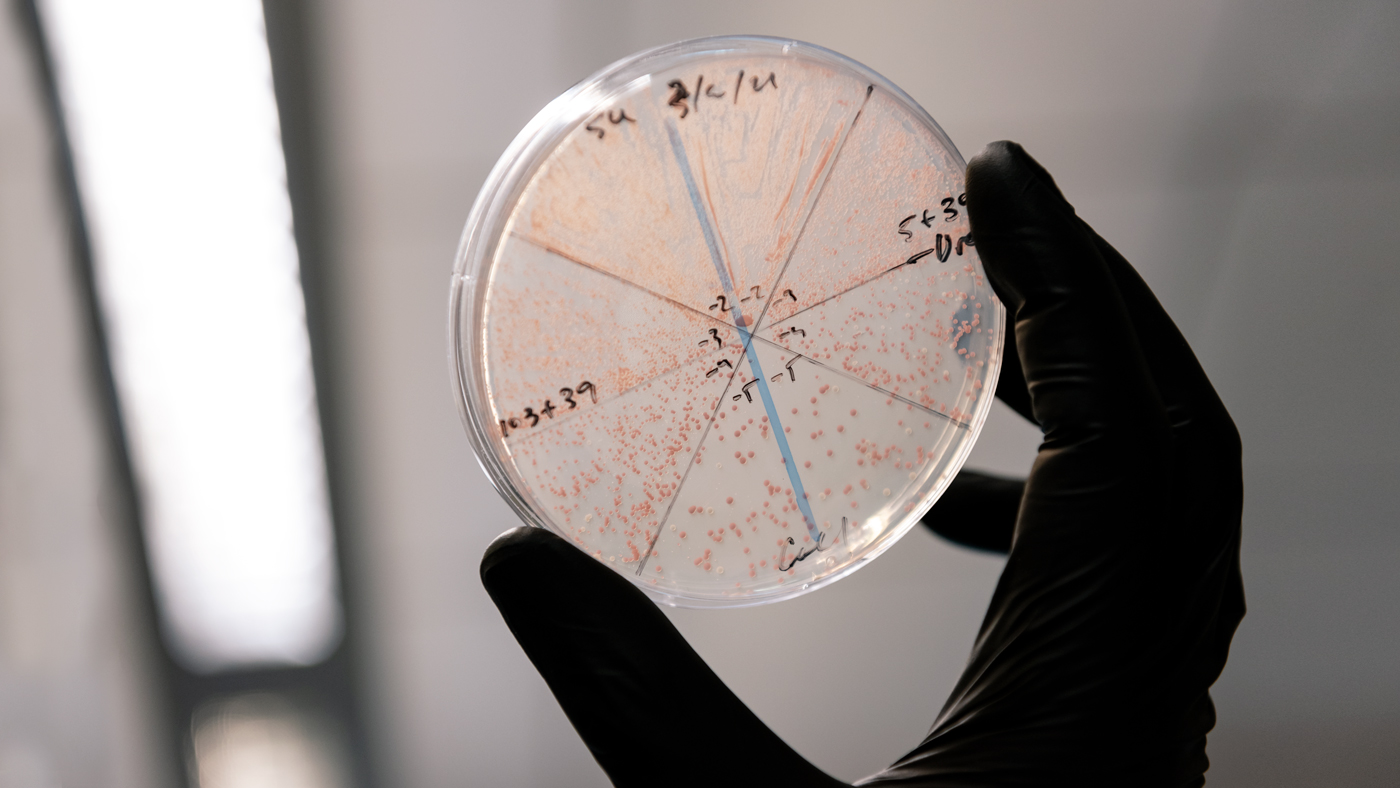
A team led by Seth Shipman fine-tuned a system for more efficient gene editing, using molecules called retrons. Retrons can be optimized for efficiency and used to edit genes in a variety of cell types, from fungi to human cells. Learn more.
2. Gladstone Scientists Stand with Ukraine
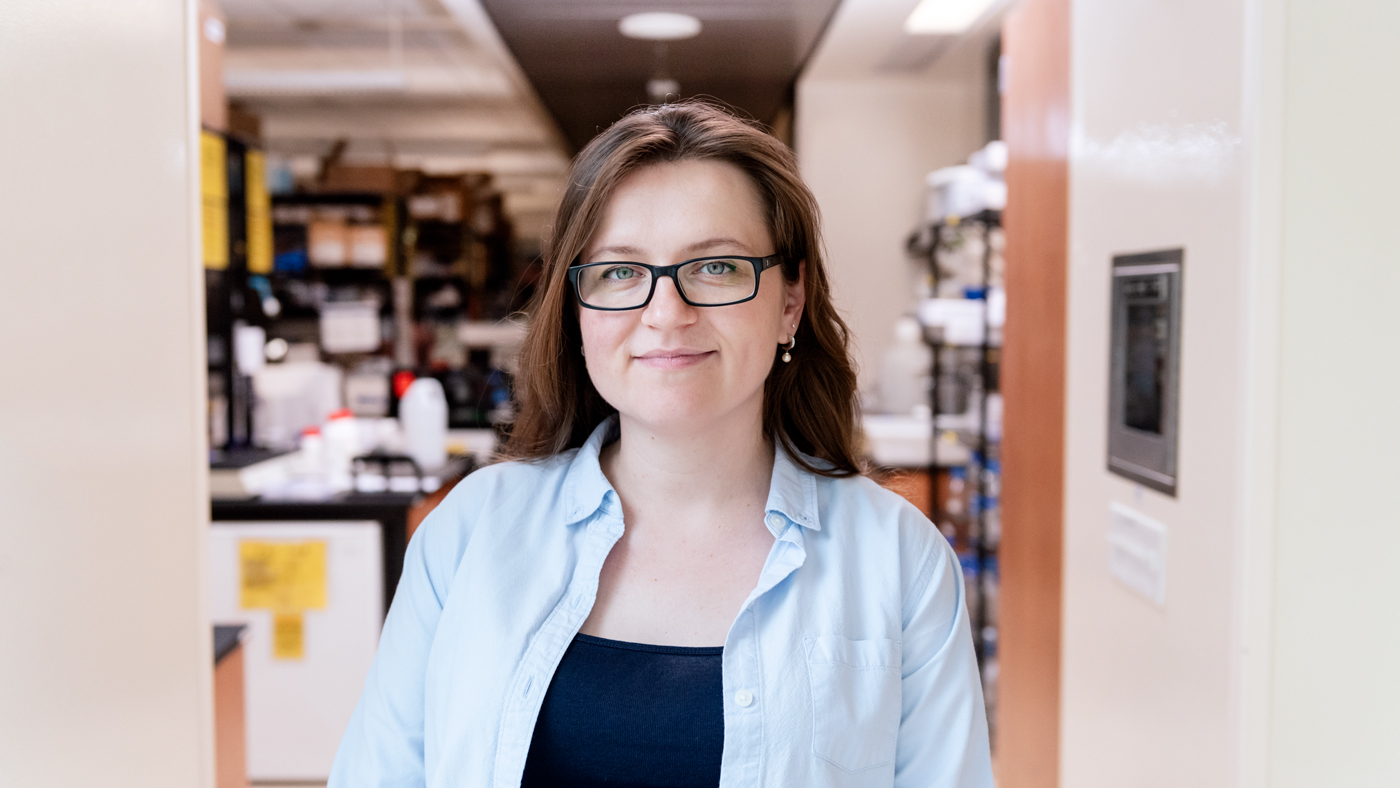
As the ongoing invasion by Russia has killed tens of thousands of Ukrainian people and displaced millions more, postdoc Yuliya Voskobiynyk has spurred action to support her native country of Ukraine, both at Gladstone and beyond. Learn more.
3. Mutant Stem Cells Defy Rules of Development
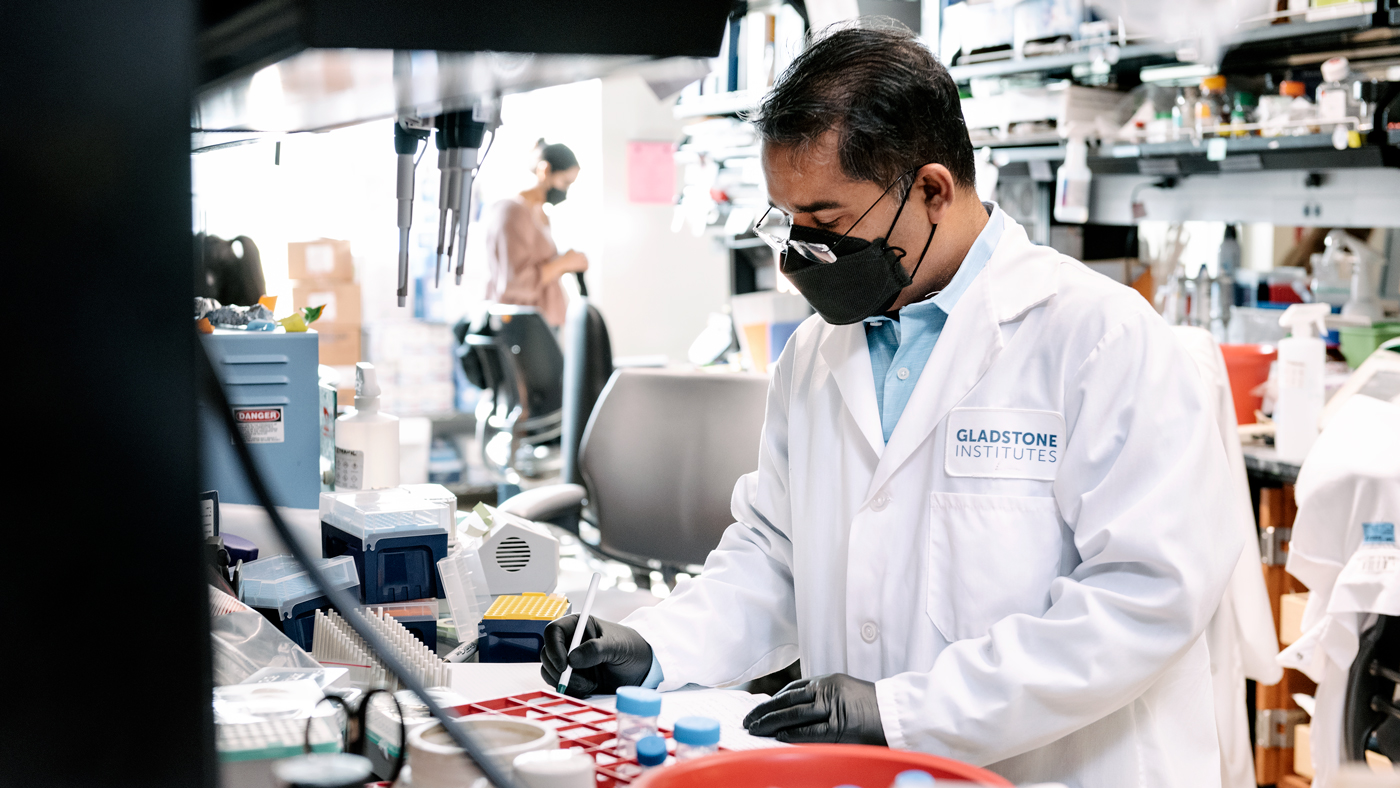
Benoit Bruneau and his team discovered, to their surprise, that removing one gene from developing heart cells suddenly makes them turn into brain cell precursors, making them rethink cellular identity. Learn more.
4. Juggling Motherhood and Science

In honor of Mother's Day, five scientists at Gladstone commented on their experience with motherhood and discussed how organizations can better support mothers working in STEM. Read more.
5. How Obesity Can Rewire the Immune System and the Response to Immunotherapy—and How to Change That
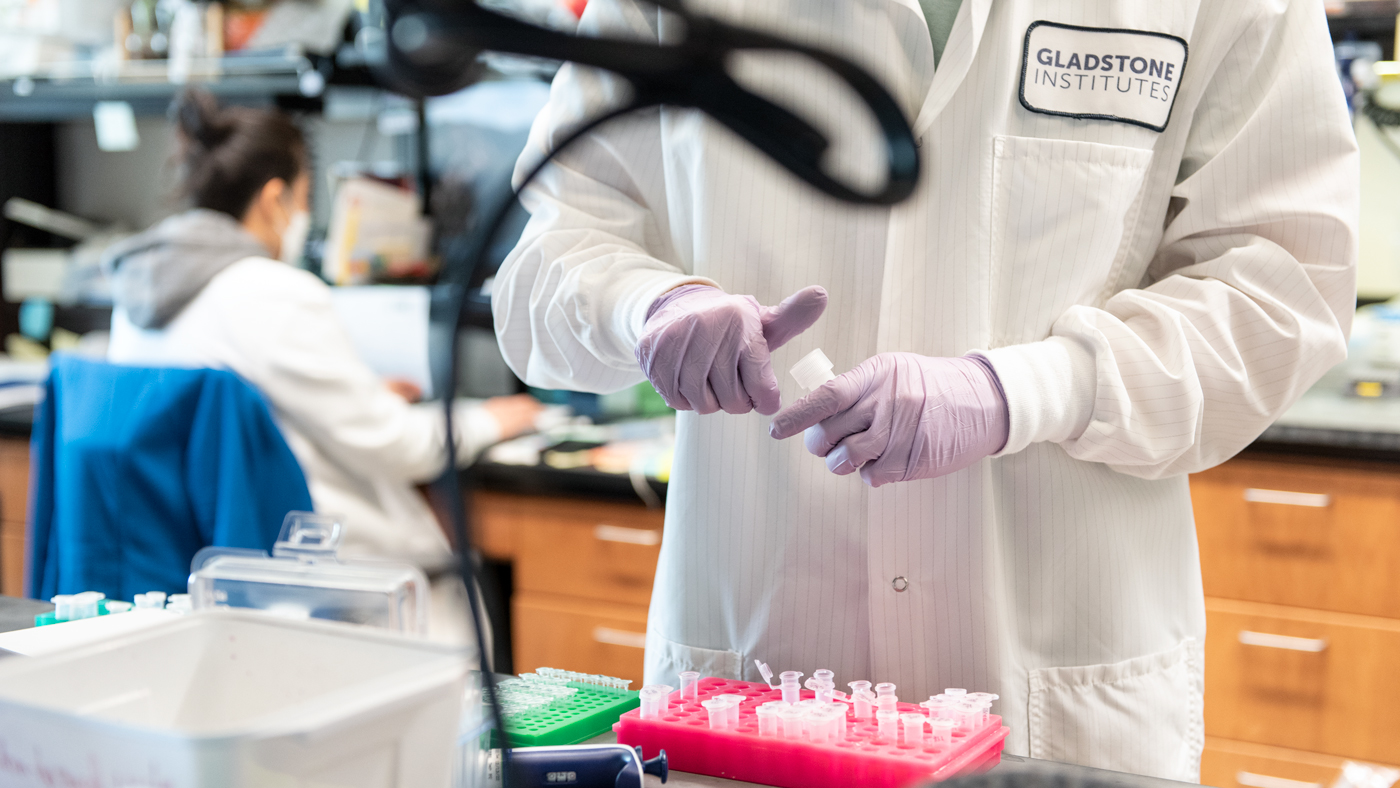
Alex Marson—along with a team of researchers at Gladstone, the Salk Institute for Biological Studies, and UC San Francisco—discovered how obesity can change the immune system and, potentially, how clinicians might be able to better treat allergies and asthma in obese people. Learn more.
6. Out in Science: Queer Futurism in STEM
As part of 2022 Pride Month, four LGBTQ+ STEM professionals discussed issues affecting the queer community in the sciences, ways we can transform how science is practiced, and their hopes for the future. Watch a recording from the event.
7. Mini-Livers on a Chip
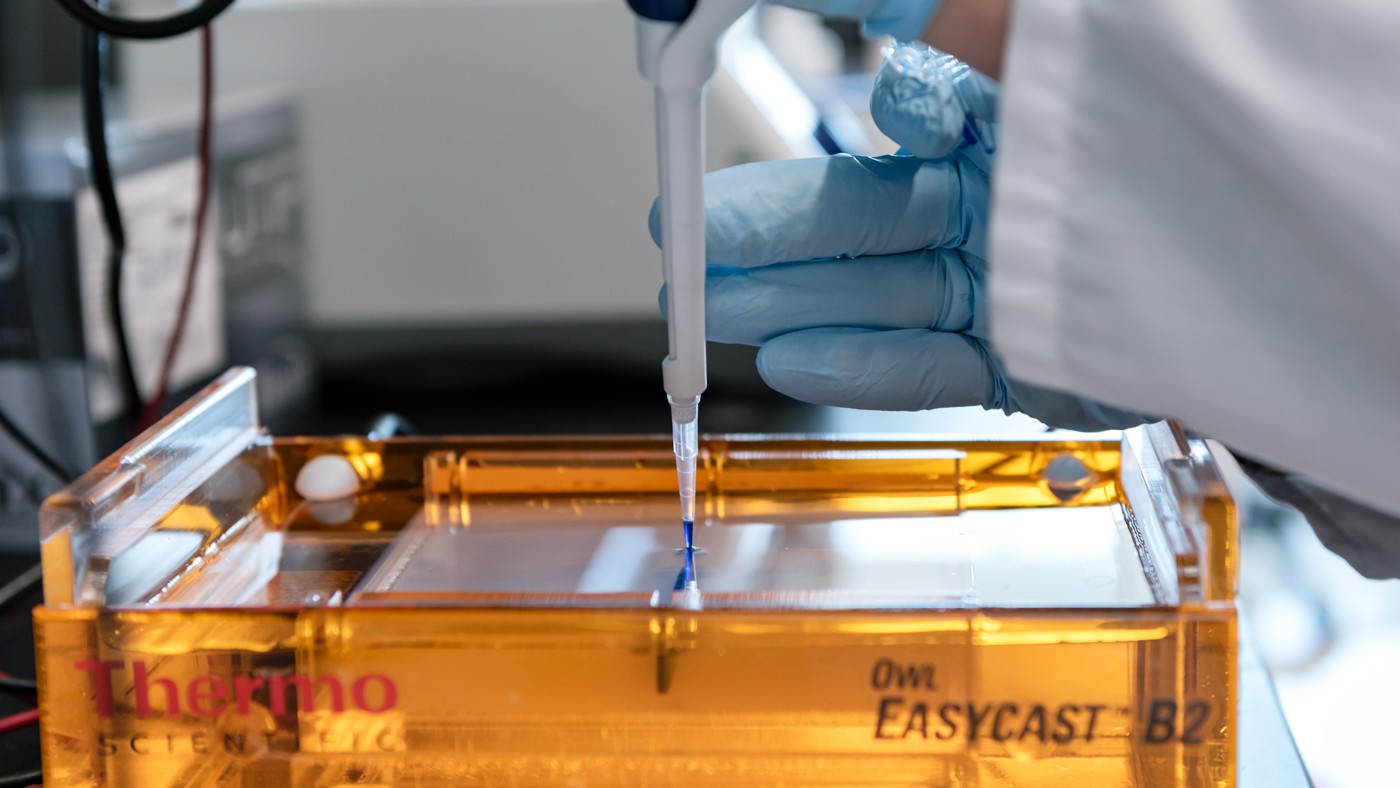
A team of researchers led by Todd McDevitt and Melanie Ott designed a new platform to study how the immune system responds to hepatitis C infection by combining microfluidic technology with liver organoids. Learn more.
8. Here’s What You Should Know about Monkeypox
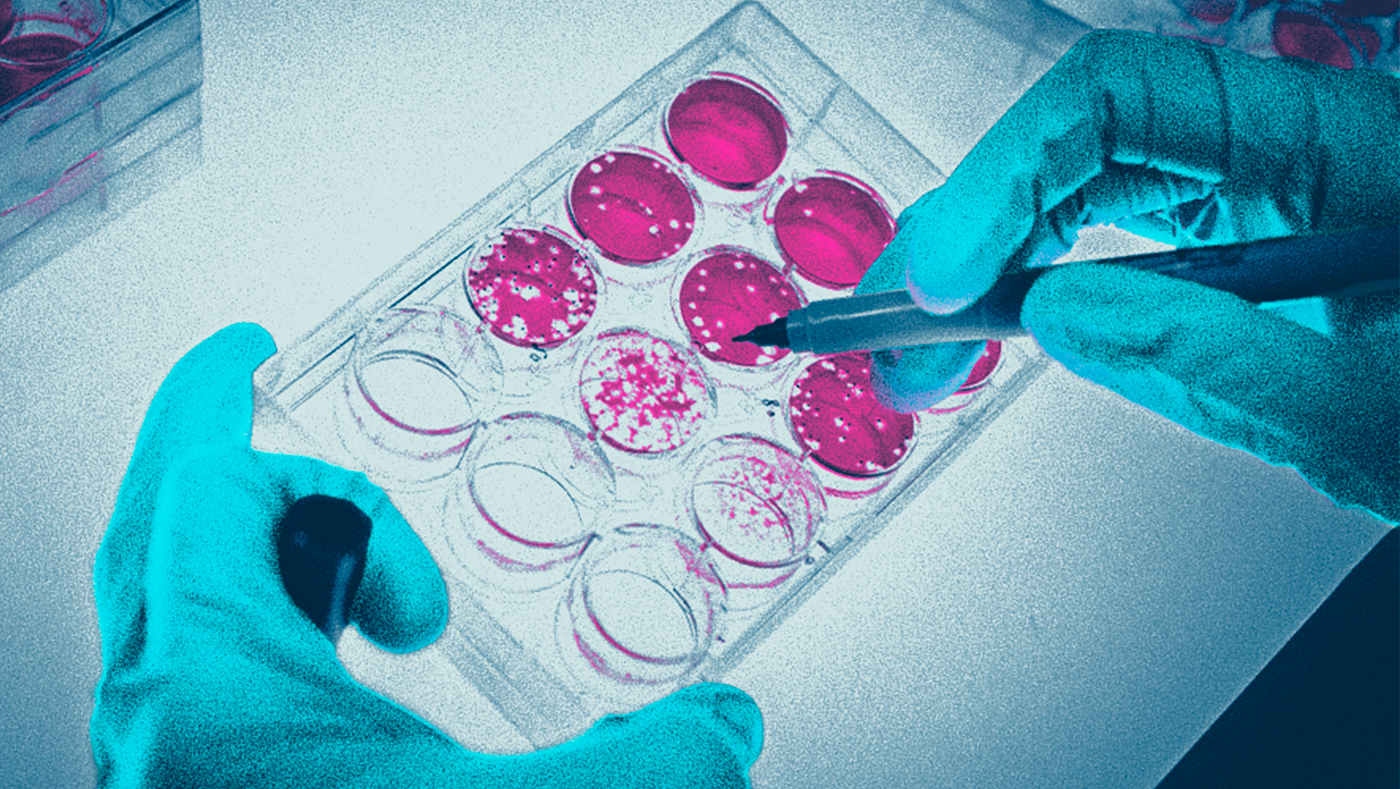
While the world continues to deal with the COVID-19 pandemic, MPXV (often referred to as monkeypox) has emerged as another global public health emergency. How worried should you be about this viral disease? Find out what four Gladstone scientists had to say about it, and why at Gladstone, we're choosing to call it "MPXV." Learn more.
9. Zeroing in on a New Treatment for Autism and Epilepsy
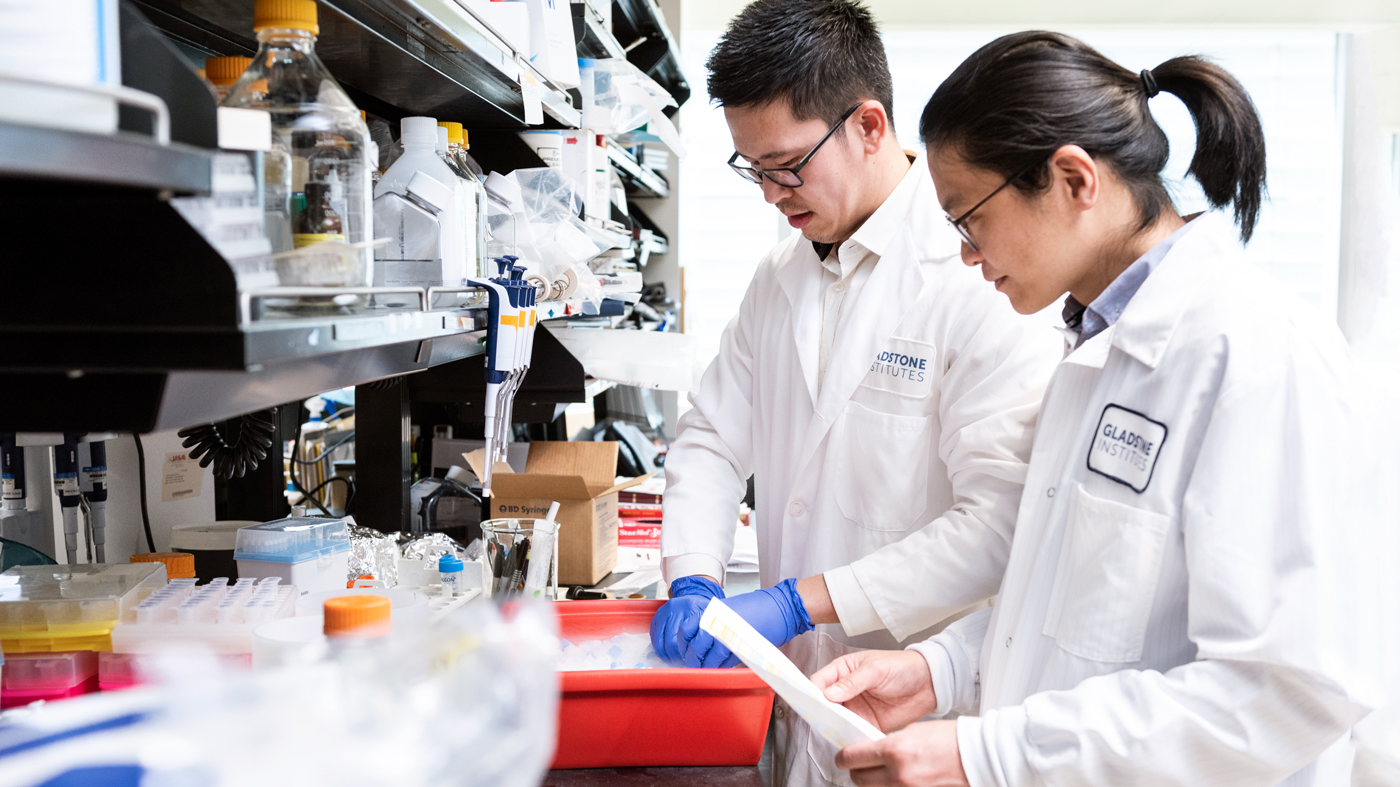
Scientists in Lennart Mucke’s lab reported findings that could guide the development of better therapeutic strategies for Dravet syndrome (a severe form of epilepsy that begins in infancy) and related conditions. Learn more.
10. “Natural Immunity” from Omicron is Weak and Limited, Study Finds
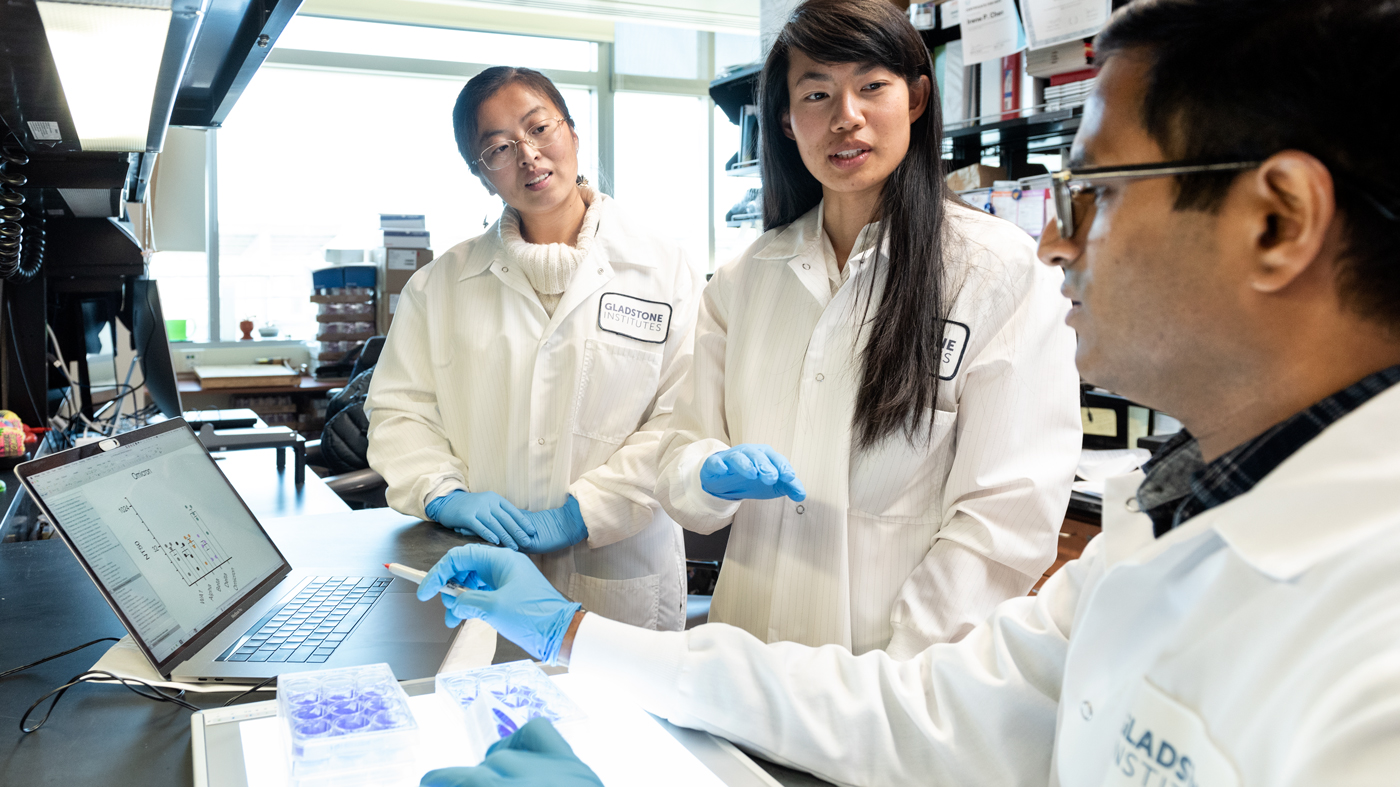
Scientists at Gladstone and UC San Francisco—including Melanie Ott, Nadia Roan, Jennifer Doudna, and Warner Greene—found that without vaccination, infection with Omicron does not provide robust immunity against other COVID-19 variants. Learn more.
Support Discovery Science
Your gift to Gladstone will allow our researchers to pursue high-quality science, focus on disease, and train the next generation of scientific thought leaders.
Gladstone’s Scientific Highlights of 2025
Gladstone’s Scientific Highlights of 2025
From fundamental insights to translational advances, here’s how Gladstone researchers moved science forward in 2025.
Gladstone Experts Alzheimer’s Disease Autoimmune Diseases COVID-19 Neurological Disease Genomic Immunology Cardiovascular Disease Data Science and Biotechnology Infectious Disease Conklin LabScience in Seconds | Researchers Pinpoint Key Gene Behind Heart Defects in Down Syndrome
Science in Seconds | Researchers Pinpoint Key Gene Behind Heart Defects in Down Syndrome
In this video, Gladstone scientists share how they used stem cells, gene editing, and AI to identify a gene driving heart defects in Down syndrome—and how reducing its levels in mice restored normal heart development, offering hope for future treatments
Gladstone Experts Cardiovascular Disease Data Science and Biotechnology Pollard Lab Srivastava Lab AI Big Data CRISPR/Gene Editing Human Genetics Stem Cells/iPSCsScience in Seconds | The Thinking Microscope: Research Powered by an AI Brain
Science in Seconds | The Thinking Microscope: Research Powered by an AI Brain
In this video, Steve Finkbeiner and Jeremy Linsley showcase Gladstone’s groundbreaking “thinking microscope”—an AI-powered system that can design, conduct, and analyze experiments autonomously to uncover new insights into diseases like Alzheimer’s, Parkinson’s, and ALS.
Gladstone Experts ALS Alzheimer’s Disease Parkinson’s Disease Neurological Disease Finkbeiner Lab AI Big Data

